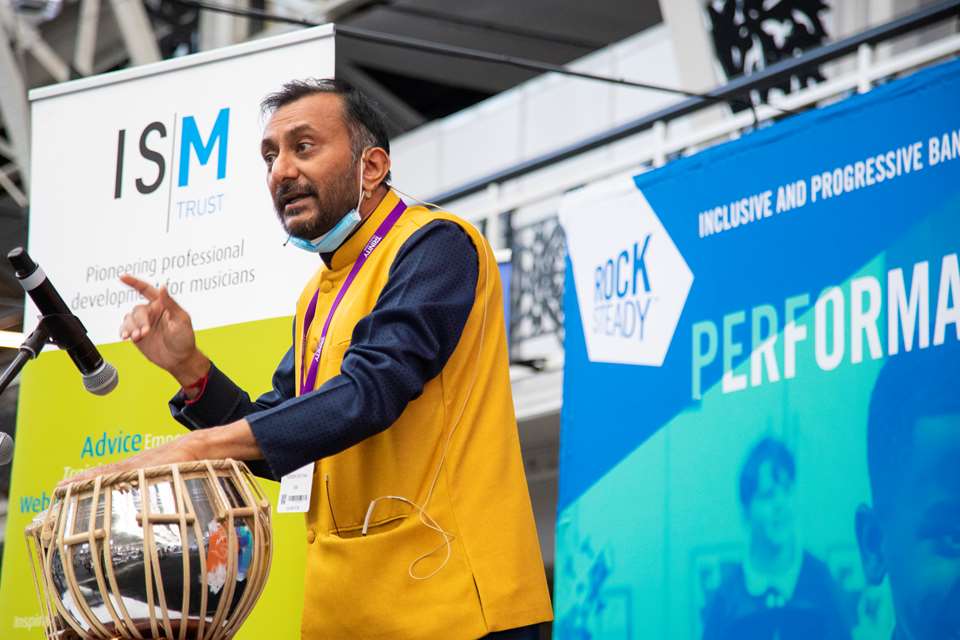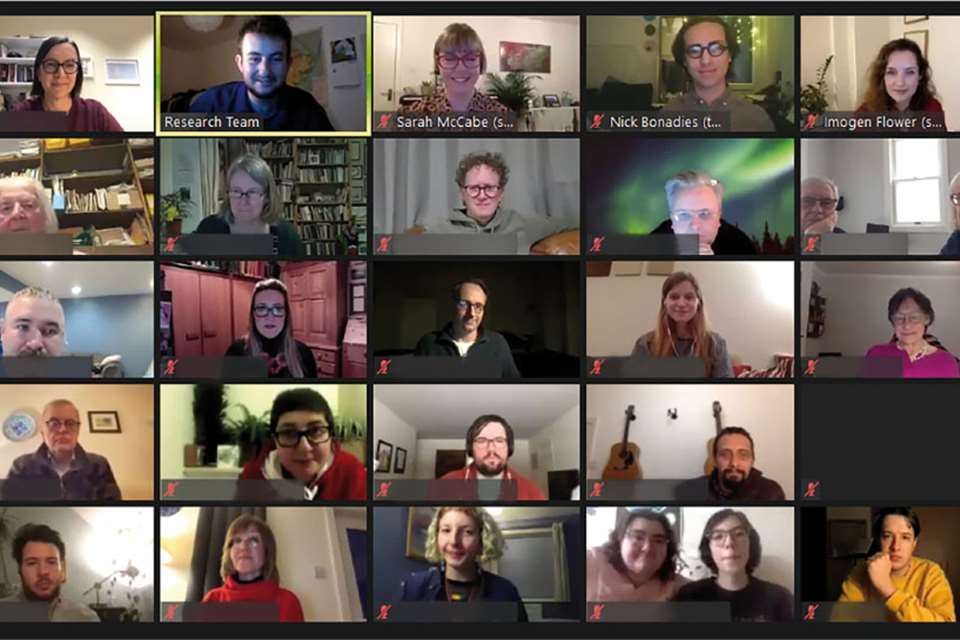Music education's workforce diversity problem
Yogesh Dattani
Sunday, May 1, 2022
Head of Ealing Music Service and equity, diversity and inclusion lead for Music Mark, Yogesh Dattani outlines some of the causes behind the lack of diversity among the workforce and shares his thoughts on how they may be addressed.

Ink Drop/Adobe Stock
Music education in the UK has a diversity problem. A problem that is so widespread and deeply ingrained that the vast majority of teachers don't look like many of their pupils, and the very term ‘music’ is almost synonymous with one particular genre. While there is much to do to redress this imbalance – there are some positive trends and steps currently being undertaken – this article touches on three of the causes of this lack of representation and shares some thoughts on how I am currently engaged in addressing these in Ealing.
The many benefits of a diverse workforce are now well known; of which, first and foremost, is that it is good for understanding the needs, desires and aspirations of the children and young people that we are entrusted to support and nurture.
Gender bias
Arwa Mahdawi, a New York-based writer and brand strategist revealed in her 2016 TED Talk titled, ‘The Surprising Solution to Workforce Diversity’, that of the leaders of major US companies, 17 are called John, as opposed to just seven women.
During her keynote address at the Federation of Music Services’ Annual Conference in 2000, Margaret Griffiths noted that from her first few meetings with the organisation’s key players and attendance at conferences, it seemed to her that she could well have been at the ‘Federation of Men in Suits’.
Fast forward to 2018, when I was researching gender representation among leaders of music services in England, I found that out of 124 leaders, 46 (37 per cent) were women – just over a third. Not quite representative of society, but a big improvement from Griffiths’ time as HMI. Currently, of the 141 leaders of music services in England and Wales, 67 (48 per cent) are women.
I am not aware of any research that examines the factors that underpin this trend, however Bridget Whyte, CEO of Music Mark says, ‘The increase in women leader role models is helping to remove the real or perceived glass ceiling in many fields, including in music more broadly (from there being more women on the front desks of the orchestra and on the podium to more women DJs and producers) and specifically […] in teaching and leadership roles within music education. The gender stereotypes are disappearing, and with an increase in women leaders comes new perspectives which can help inform the diversity conversation.’ Regardless of the actual reasons, a near equal gender representation is a cause for celebration.
Genre bias
Specific to music education, systemic genre bias ensures that only those individuals who specialise in certain genres succeed in securing employment or being promoted to senior positions. For example, organisations often require candidates to lead a rehearsal of their flagship orchestra or choir as part of the recruitment process, thus excluding the many excellent music educators that specialise in non-Western genres.
In order to attract diverse personnel, employers simply need to enable candidates to demonstrate that they can lead collaborative music making opportunities. This can, of course, be an orchestra; but it can equally be a gospel choir, gamelan orchestra or a tablā ensemble.
Unconscious bias
This is simply human beings’ unintended preferences for certain types of people. They are formed by how and with whom we choose to socialise with, our personal experiences, and the way different types of people are represented in the media. These factors combine to act as filters through which we make judgements about the people around us or those who seek employment from us.
There are several strategies that can mitigate the negative effects of ones’ own unconscious bias, and the following are among the three that I am currently exploring.
The National Football League’s Rooney Rule requires candidates from ethnic minorities to be interviewed for head coaching and senior football operation jobs. It is an example of positive discrimination, even though recruitment is always based on merit, and it has been tremendously successful. Since its implementation in 2003, 17 teams have had either an African American or Latino head coach or general manager.
Strategies inspired by the Rooney Rule can help to recruit a more diverse workforce in our sector. In my experience, simply communicating the fact that I would like to hear from individuals of all backgrounds has helped to increase the number of applications, including from those who perhaps may not have applied.
During a recent application for a trustee role, I was so intrigued by being sent the questions in advance that I started to research the advantages of doing so and have even implemented this for a recent deputy head role. There is an abundance of information on the internet, and the consensus is that, while one needs to ensure that candidates can't simply Google the responses, the benefits are considerable.
I believe that it could help with anti-ageism, as it will enable younger candidates – who may have less interview experience and may be more nervous – to demonstrate that they can do the job well. I also believe that this could enable interviewers to probe the candidates’ abilities in greater depth, not to mention that it could sort out those candidates willing to prepare for the interview well as opposed to the rest.
In the 1970s and 1980s, most orchestras in the US implemented blind auditions in an attempt to redress the chronic shortage of females in orchestras. This resulted in the percentage of female musicians in the five highest-ranked orchestras increase from 6 per cent in 1970 to 21 per cent in 1993. I am currently exploring online applications and thus anonymising the shortlisting process.
Since George Floyd’s murder in May 2020, several music and arts organisations have taken a proactive approach towards a more inclusive sector. The most notable of initiatives are Music Mark’s Talk into Action, Music Masters’ I’M IN, and Changing Tracks’ work on Inclusive Recruitment.
A call to action
We music educators often extol the benefits of an excellent music education, from developing excellent organisational and communications skills to its ability for developing well-rounded people. And quite rightly so! We must now extend this to our firm commitment of making music education more inclusive in all its forms, from ensuring that more staff look like the pupils they seek to teach, to offering a wider range of musical genres for pupils to enjoy and explore.





